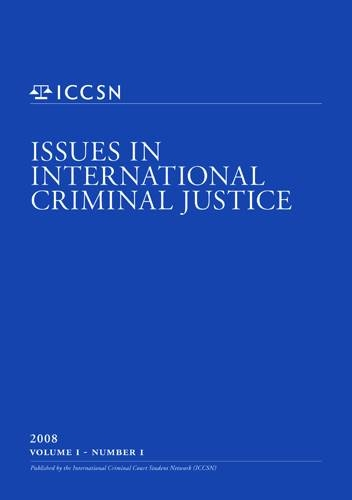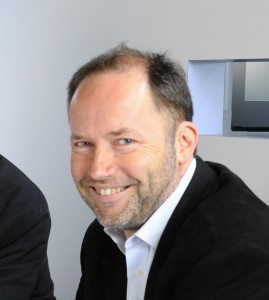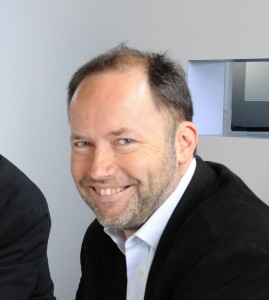 Professor Martin Kretschmer’s research into private copying and fair compensation is at the centre of a discussion at an Intellectual Property Office event next week.
Professor Martin Kretschmer’s research into private copying and fair compensation is at the centre of a discussion at an Intellectual Property Office event next week.
‘Informing Copyright Policy in the UK’ takes place on Wednesday 19 October, in partnership with The Big Innovation Centre.
It is an opportunity for copyright owners, technology companies, consumers, academics and policy makers to discuss exactly what Kretschmer’s findings mean for UK policy making.
The influential research paper, entitled ‘Private Copying and Fair Compensation: A comparative study of copyright levies inEurope’, offers the first independent empirical assessment of the European levy system.
The research consolidates evidence on levy setting and collection, as well as reviewing the scope of consumer permissions associated with levy payments. Professor Kretschmer reports the results of three product level studies – printer / scanners, portable music / video / game devices and tablet computers – and analyses the relationship between VAT, levy tariffs and retail prices in 20 levy and non-levy countries.
The other paper up for discussion is ‘Changing Business Models in the Creative Industries: The Cases of Television, Computer Games and Music, by Dr Nicola Searle from theUniversityofAbertay,Dundee.
More information at the event can be found here.
Professor Kretschmer’s key findings:
– There are dramatic differences between countries in the methodology used for identifying leviable media and devices, setting tariffs, and allocating beneficiaries of the levy. These variations cannot be explained by an underlying concept of economic harm to right holders from private copying.
– The scope of consumer permissions under the statutory exceptions for private copying within the EU does not match with what consumers ordinarily understand as private activities.
– In levy countries, the costs of levies as an indirect tax are not always passed on to the consumer. In competitive markets, such as those for printers, manufacturers of levied goods appear to absorb the levy. There appears to be a pan-European retail price range for many consumer devices regardless of levy schemes (with the exception ofScandinavia).
– In non-levy countries, such as theUK, a certain amount of private copying is already priced into retail purchases. For example, right holders have either explicitly permitted acts of format shifting, or decided not to enforce their exclusive rights. Commercial practice will not change as a result of introducing a narrowly conceived private copying exception.
– A more widely conceived exception that would cover private activities that take place in digital networks (such as downloading for personal use, or noncommercial adaptation and distribution within networks of friends) may be best understood not as an exception but as a statutory licence. Such a licence could include state regulated payments with levy characteristics as part of a wider overhaul of the copyright system, facilitating the growth of new digital services.
Links
Professor Martin Kretschmer’s academic profile
More publications by Professor Martin Kretschmer
CIPPM: Recent policy reports
 Dr. Dinusha Mendis has published a paper on 3D Printing and its implications for Intellectual Property Law titled ‘“The Clone Wars”: Episode 1 – The Rise of 3D Printing and its implications for Intellectual Property Law: Learning Lessons from the Past?’ The paper was published in the European Intellectual Property Review in February 2013 (pp. 155-169).
Dr. Dinusha Mendis has published a paper on 3D Printing and its implications for Intellectual Property Law titled ‘“The Clone Wars”: Episode 1 – The Rise of 3D Printing and its implications for Intellectual Property Law: Learning Lessons from the Past?’ The paper was published in the European Intellectual Property Review in February 2013 (pp. 155-169).

 Twelve months into her PhD, Law research student Ellie Smith has published an article entitled ‘Investigating Rape at the International Criminal Court: The Impact of Trauma’ in the Issues in International Criminal Justice Journal. Ellie’s current research focuses on the scope for narrative truth at the International Criminal Court, survivor perceptions of justice, and the nature of rehabilitation as a legal remedy for survivors of gross human rights violations. A second article is currently under review with the A-rated Journal of International Criminal Justice.
Twelve months into her PhD, Law research student Ellie Smith has published an article entitled ‘Investigating Rape at the International Criminal Court: The Impact of Trauma’ in the Issues in International Criminal Justice Journal. Ellie’s current research focuses on the scope for narrative truth at the International Criminal Court, survivor perceptions of justice, and the nature of rehabilitation as a legal remedy for survivors of gross human rights violations. A second article is currently under review with the A-rated Journal of International Criminal Justice.





 Bournemouth University’s Director for the Centre for Intellectual Property Policy and Management (CIPPM), Professor Martin Kretschmer, has been invited to speak at the World Intellectual Property Organization (WIPO) in Geneva.
Bournemouth University’s Director for the Centre for Intellectual Property Policy and Management (CIPPM), Professor Martin Kretschmer, has been invited to speak at the World Intellectual Property Organization (WIPO) in Geneva.


 Watch this excellent short video from BU’s
Watch this excellent short video from BU’s  Neelie Kroes, Vice-President of the European Commission responsible for the Digital Agenda, made her annual set piece speech at the Media Forum in Avignon, France on 19 November:
Neelie Kroes, Vice-President of the European Commission responsible for the Digital Agenda, made her annual set piece speech at the Media Forum in Avignon, France on 19 November: 
 Professor Martin Kretschmer’s
Professor Martin Kretschmer’s 










 SPROUT: From Sustainable Research to Sustainable Research Lives
SPROUT: From Sustainable Research to Sustainable Research Lives BRIAN upgrade and new look
BRIAN upgrade and new look Seeing the fruits of your labour in Bangladesh
Seeing the fruits of your labour in Bangladesh Exploring Embodied Research: Body Map Storytelling Workshop & Research Seminar
Exploring Embodied Research: Body Map Storytelling Workshop & Research Seminar Marking a Milestone: The Swash Channel Wreck Book Launch
Marking a Milestone: The Swash Channel Wreck Book Launch ECR Funding Open Call: Research Culture & Community Grant – Application Deadline Friday 12 December
ECR Funding Open Call: Research Culture & Community Grant – Application Deadline Friday 12 December MSCA Postdoctoral Fellowships 2025 Call
MSCA Postdoctoral Fellowships 2025 Call ERC Advanced Grant 2025 Webinar
ERC Advanced Grant 2025 Webinar Update on UKRO services
Update on UKRO services European research project exploring use of ‘virtual twins’ to better manage metabolic associated fatty liver disease
European research project exploring use of ‘virtual twins’ to better manage metabolic associated fatty liver disease